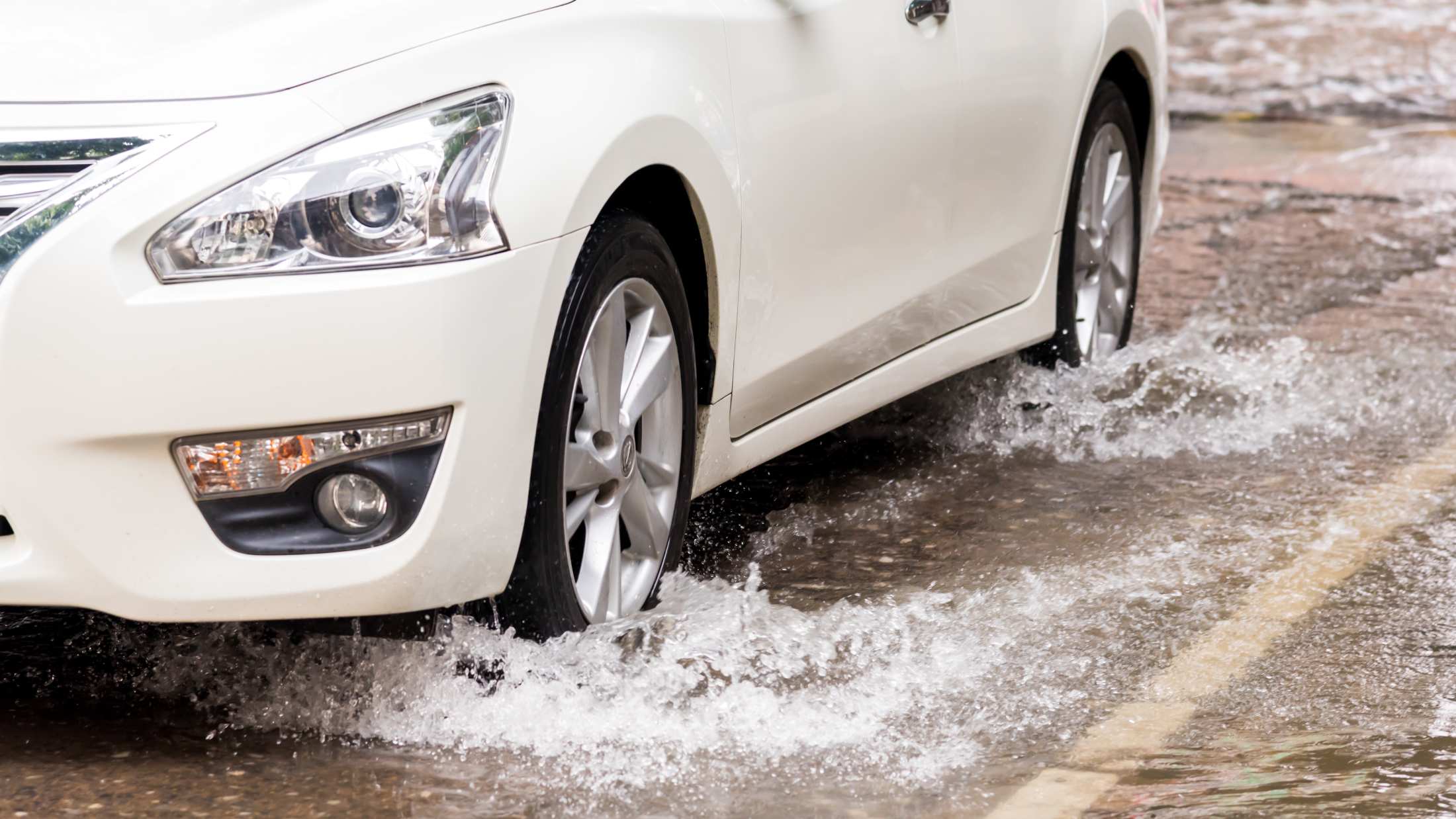From glare to getaway gridlock, driving in the summer comes with its own set of challenges.
Prevent your summer adventures coming to an unexpected stop. Here’s AXA’s top dos and don’ts of driving in the warmer months:
The dos of summer driving
Be prepared
So you’re prepared for the worst, keep an emergency kit in your car. You might want to include a first aid kit, a spare tyre, a portable phone charger or power bank, jump cables and your insurance documents.
Share the roads
School’s out for summer, so expect roads to be much busier with all kinds of vehicles. Make sure you give cyclists, horse riders, and bikers plenty of space.
You’ll also need to be extra careful when driving through areas where children are likely to play.
Check your tyres
Tyre faults rank as one of the most common breakdown causes1. When high temperatures can make existing tyre damage worse, it pays to check your tyres weekly or before a long journey.
Keep a clear view
Maintain a crystal-clear windscreen by keeping your windscreen washer levels topped up, replacing worn or damaged wipers and getting scratches and chips repaired.
Dazzled by glare? Use your sun visors and keep a pair of glare-resistant sunglasses handy.
Top up your fluids
Engine coolant, power steering fluid, brake fluid, oil and windscreen wash make up the lifeblood of your car. Make sure you check the levels of each liquid.
On a long journey? Keep an eye on your fuel levels. It might seem like a no-brainer but running out of fuel is responsible for more breakdowns than you’d think.
Know your route
Technology can be temperamental, so it’s good to have a back up for your sat nav. Research your route before hitting the road, and invest in a road map you know how to use. It could help you avoid the summer getaway gridlock.
The don'ts of summer driving
Don't drive tired
Accidents caused by sleep are more likely to end in death or serious injury. Try to get a good night’s sleep if you know you’ve got a long journey ahead of you.
When you’re on the road, take at least a 15-minute break every two hours. Coffee and other caffeinated drinks can help perk you up, too.
Don't leave your kids or pets in your car
Never leave vulnerable passengers, children or pets behind in your car - no matter how quick you think you’re going to be. In-car temperatures can spike dangerously high within a few minutes during the summer months. When it’s 22 degrees outside, a car can reach 47 degrees within an hour.
Don’t forget to close your windows and sunroof, and lock your doors if you’re leaving your car unattended. Your AXA car insurance won’t cover you for items lost or stolen after you’ve left windows open or doors unlocked.
Don't get caught in traffic
It pays to plan your journey ahead so you can try your best to avoid roadworks or traffic delays. Check for updates via local radio or Traffic England, Traffic Scotland, Transport Northern Ireland, Traffic Wales.
Don't forget the entertainment
Whether heading on a family holiday or a day trip, long journeys can be tough on young kids. Keep your little ones entertained on long car journeys by packing toys, tablets, headphones and portable DVD players and hone your observation skills with classic car games including I Spy and Yellow Car.
Don't let hay fever stop you
Did you know, if you sneeze driving at 70mph, you won’t see the next 60+ meters of travel
If you’ve got hay fever, choose a non-drowsy medication, keep tissues handy, and close vents and windows when driving to minimise symptoms.
Don't leave it to chance
In 2024, AXA attended 64,000 breakdowns in the UK2, helping drivers get back on the road more quickly.
When the worst happens, we can help you get back on the road. With cover if an uninsured driver causes damage to your car, and wrong fuel cover, why not invest in AXA’s car insurance? Don’t forget to add breakdown insurance to your cover for ultimate peace of mind.
1 According to AXA Assistance, tyre issues were the 3rd largest driver of UK breakdown call outs. Measured between 1 January 2024 - 31 December 2024.
2 64,000 UK breakdowns attended according to AXA Assistance, measured between 1 January 2024 - 31 December 2024.

















